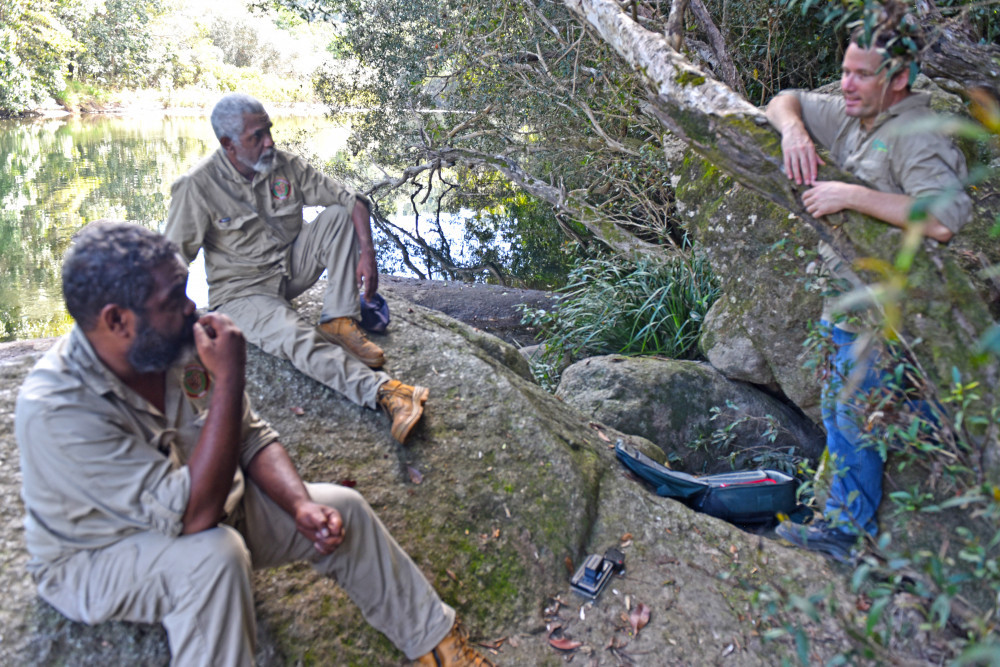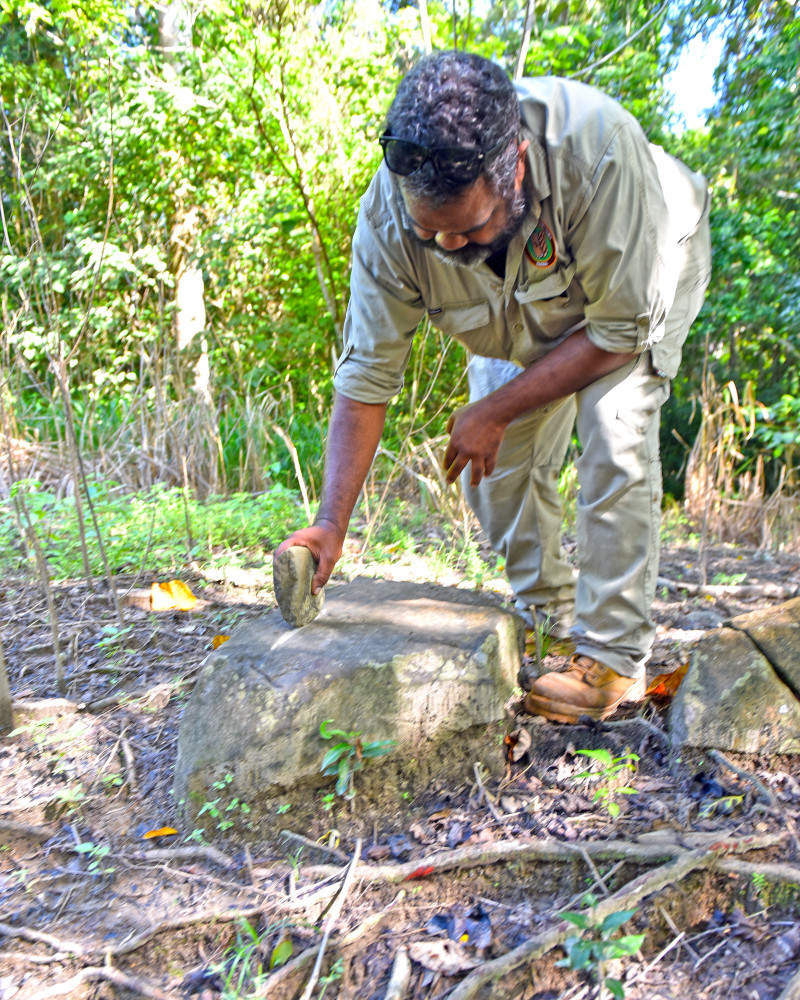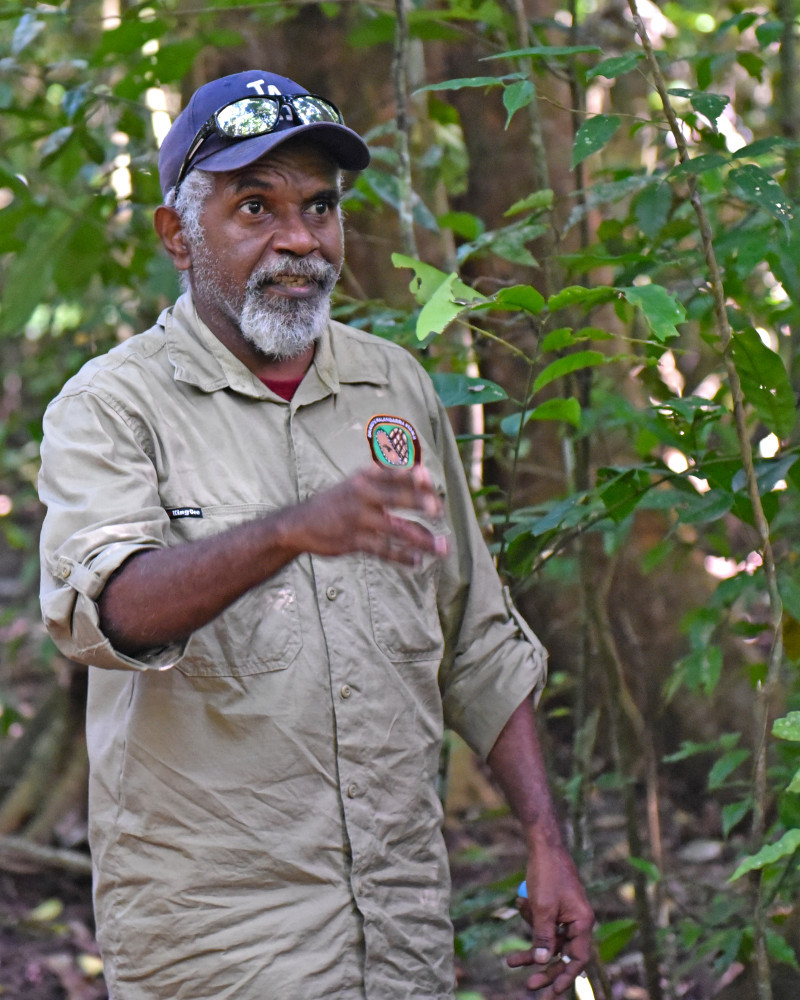Community
27 August, 2021
Ranger program build environmental database
The Wet Tropics Management Authority, Queensland Parks and Wildlife Service and Partnerships (QPWS&P) and Dulabed and Malanbarra Yidinji peoples of the Goldsborough area are working together to protect Country and culture under a project supported by the Queensland Government’s $10 million Reef Assist program.

Facilitated by the Wet Tropics Management Authority, the Working on Country Together project has led to the Dulabed and Malanbarra Yidinji Aboriginal Corporation (DMYAC) employing their first two trainee rangers.
Through a Memorandum of Understanding with QPWS&P, assistance has been provided in training and developing skills in the field, which has enabled DMYAC to deliver on-ground actions, and to establish their own ranger program.
Trainee ranger Luke Clubb said, “At the moment we are working with national parks in managing our Country, so that includes doing a lot of fire management, reveg, track maintenance, looking after the campgrounds, toilet maintenance—just caring for Country.”
“The Reef Assist program has been really great for us. If we’re not going to look after our cultural heritage, who is going to do it.
“Eventually we’d like to be self-sustainable, running our own tours and doing land management on a scale that we can assist other people while generating our own income through that.”

Having rangers has also value added to DMYAC’s Looking after Country Grant through the Queensland Indigenous Rangers Program. This grant has allowed for the development of a cultural heritage database system. Rangers have been actively involved with Elders in documenting cultural knowledge and undertaking training in cultural heritage management.
Fellow trainee ranger Jason Ambyrum said, “The Reef Assist funding is very important to us. Some of our (cultural) sites are still here, so we need to preserve them by looking after them and managing them, as well as educating the broader community on what we have here.”
“Some of the cultural work we have been doing is finding burial sites and ceremony sites and finding tools that they would use in those days.
“We’re developing a cultural heritage database, and that enables us to go out and record sites with Elders. Whatever we go out and record, we record that on a tablet and take that back to our organisation and that gets put into our database. I think this is a really important part of what we do to preserve the culture for future generations.

It’s important for us to preserve what we have here and to be able to continue to manage it. We want our kids to come through and do the same thing as what we’ve been doing and what our Elders have been doing for so many years. We want to get our kids connected back onto Country,” said Mr Ambyrum.
The Wet Tropics Management Authority’s Executive Director Scott Buchanan said, “This ranger program is one of four ranger programs we have supported this year through Reef Assist funding.
“There are other successful programs being run by the Gunggandji-Mandingalbay Yidinji Peoples Prescribed Body Corporate Aboriginal Corporation in Yarrabah, Mamu Aboriginal Corporation in Innisfail, and Gimuy Walubara Yidinji rangers in Cairns.”
“These projects being delivered by Rainforest Aboriginal Peoples are a testament to the importance of incorporating traditional knowledge into contemporary land management and restoration practices.” said Mr Buchanan.


